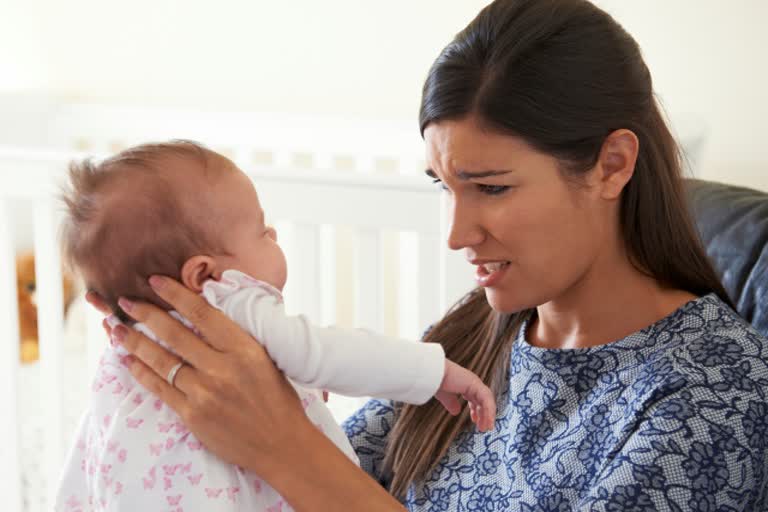A majority of women behave disturbed and irritated during their pregnancy or after childbirth. In India, many women are accused of not showing affection towards the baby for exhibiting this type of behavior. Many people confuse this behavior as a mental disorder. But this type of behavior is a mental illness, and it's common in women after the childbirth or after they get pregnant. This happens because of the hormonal changes in a women’s body and it’s called the Postpartum Depression and understanding why this occurs helps to solve the issue.
Postpartum is the phase after a women’s delivery and the depression during this period is called Postpartum depression. This occurs due to the hormonal changes occurring in the body during pregnancy and after childbirth. This type of depression occurs in two stages, Prenatal and Postnatal. (Before and after delivery).
Why is this caused?
“Any kind of depression needs an empathetic approach,” our expert Clinical Psychologist Rashmi Wadhwa advises. The cause for postpartum depression is evident due to the hormonal changes, changes in the life pattern, the shift of care from self to the baby. But simultaneously when the timetable of the others gets this person upset, sacrificing the sleep and their eating patterns and the compulsory daily chores, along with taking care of someone, sacrificing their needs, all of these, lead these people to confusion. These sudden changes disturb them and lack of support and understanding from other caretakers in the family will lead them to postpartum depression.
“PPD is treatable. But one needs to understand that infant growth is rapid in the first two years. 80% of the brain develops by 10 years. This is why happiness and comfort during this period will enhance a sound and good growth of the developing child”, Dr. Rashmi mentions. “But one needs to notice that, the mother when suffering from PPD will surely leave an affect her lactation and this will lead to neglecting both the self and baby. Emotional stress can be transferred to the developing child impeding the child’s growth,” she concluded.
Though PPD is serious and leaves a major impact on a child’s growth, it is treatable. The treatment depends on the intensity of the PPD stage. “PPD usually erupts and subsides in two weeks”, clarifies Dr. Rashmi. “But during these days understanding the person and providing the right help, guidance, and support from other caretakers can fetch good results. However, if the condition persists beyond a month, then medicinal help can be sought,” she added.
Family counselling, understanding, support, and adjustments are the keys to help a person suffering from PPD. PPD is treatable and understanding a person suffering from it helps the most to overcome this illness.



